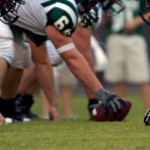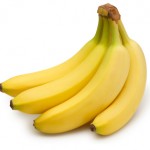A recent article in The Wall Street Journal described how the Houston Texans professional football team is using data I read in the Archieves of Internal Medicine online to improve player safety. The Texans are facing some of our worst summer heat and are going to extraordinary lengths to prevent heat-related injury.
I'm not at all sure I agree with their stategem, practicing in triple-digit weather outdoors in the full sun. Their theory is that doing so helps their players remain fresh in the heat of early-season games. Other teams have opted for temperature-controlled practice arenas or night-time workouts or cooler climes.
We'll wait and see the results, but at least they're using the latest medical research and some practical concepts.
Players are weighed pre-practice and afterwards (the team, collectively, lost an incredible average of 450 pounds per two-hour session one week). That's in spite of replacement fluids and ice to the tune of 100 gallons of water, 50 cases of Gatorade and three quarters of a ton of ice for ninety men. One three-hundred-plus tackle lost seven pounds and had to receive IV fluids.
The Archives article and a subsequent Harvard Heart Letter detailed research and historical perspective. Our intake of sodium, in table salt and foods, is important, but the ratio of how much sodium to potassium in our diets may be even more crucial.
An older edition of the Harvard Heart Letter compared our modern diet to that of our primitive ancestors. Paleolithic man consumed sixteen times as much potassium (in milligrams) as sodium; today our typical diet has nearly five times as much sodium and less than a quarter of the potassium as the hunter-gatherers ate, so the ratio has marked changed.
So how do you return to a healthier diet, in those terms. Well, a banana, for instance has over 400 milligrams of potassium and almost no sodium (1 milligram). An orange has over 230 times as much potassium as sodium, steamed Brussels sprouts 35 times as much (I mean in milligrams in all cases, so scientifically my comparisons are ratios).
The Texan's head dietician and senior trainer are altering the team's diet, using lots (and I mean lots) of electrolyte-containing vegetables and fluids. They even formed a players' food committee to make sure the team members would have choices that they would like. Southerners want okra and potatoes, so that's what they get. The team members were concerned about blood pressure effects from all the salt they're getting; then they heard how the new research showed foods high in potassium and other electrolytes can balance out the effects of sodium.
The proof is in the pudding is the old saying; we'll see how the Houston team does when the season starts.
But I can certainly see the sense behind their approach.


